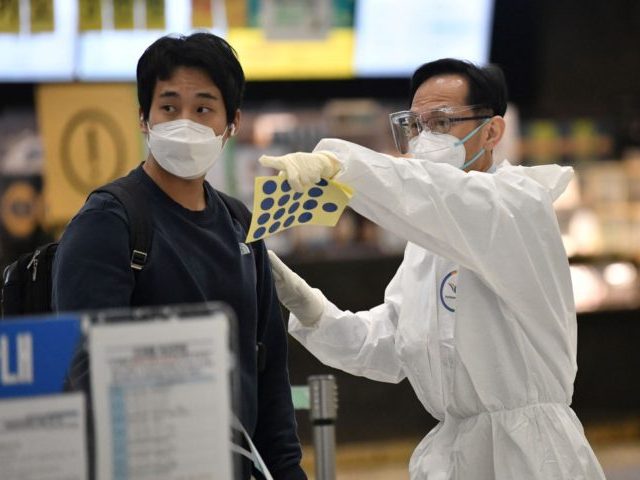An independent café owner in the South Korean port city of Incheon announced plans on Tuesday to remain open 24 hours in the coming days to protest state-mandated business curfews designed to curb Chinese coronavirus transmission, South Korea’s Yonhap News Agency reported.
“We plan to operate 24 hours despite the government imposed business restriction,” the café announced in a written notice posted to its front window on December 21.
“The business explained its accumulated debt came to 1 billion won (US$840,000) in the past year and has to continue operating as normal due to the absence of government compensation,” according to Yonhap.
An online community of small merchants in South Korea shared a photo of the notice to its internet forum on Tuesday, where it garnered many supportive comments.
“More businesses need to join,” one netizen wrote upon reading the cafe’s protest plans.
“We are in need of such courage,” another online forum user wrote of the business’s decision.
Incheon borders Seoul, South Korea’s national capital, where an association of small merchants will gather on Wednesday to denounce the federal government’s recent decision to impose restrictions on the operating hours of small businesses in an effort to reduce coronavirus transmission.
South Korea’s “National Emergency Association of Small Business Against COVID-19 [Chinese coronavirus]” told Yonhap on December 21 it plans to stage a rally on December 22 near central Seoul’s Gwanghwamun Square.
Small businesses owners, including café and restaurant owners, will participate in the anti-curfew protest.
“The number of participants was set at 299 in line with the latest gathering restriction, and protesters will be screened for their vaccination statuses,” the demonstration’s organizers said Tuesday.
“We will be able to know the actual number of participants on the day, as it is hard to estimate the number of participants volunteering to gather as of now,” Lee Chang-ho, co-chairman of the “National Emergency Association of Small Business Against COVID-19,” told Yonhap on December 21.
South Korea’s federal government announced on December 16 it would reimpose restrictions on gathering and business hours from December 18 through at least January 2 in response to the country’s surging coronavirus caseload. The nationwide mandates include limits on private gatherings. Such gatherings may include no more than four people, all of whom must be fully vaccinated against the Chinese coronavirus. The measures have forced restaurants, cafes, and bars across South Korea to close by 9:00 pm each night.
“Under the new measures … the use of restaurants and cafes will be restricted to up to four vaccinated people per visit,” South Korean Prime Minister Kim Boo-kyum told reporters at a press conference in Seoul on December 16.
“Those who have not been vaccinated [against the Chinese coronavirus] will be able to use the facilities alone or request take-out or delivery,” he added.
“Bars, nightclubs, and other entertainment venues will also be subject to the 9:00 p.m. curfew while movie theaters, concert halls, and internet cafes, however, will be able to operate until 10:00 p.m.,” Prime Minister Kim said.
South Korea chose to limit business hours ahead of the winter holidays just six weeks after Seoul announced a scheme for the nation called “living with Covid [Chinese coronavirus],” which saw the South Korean federal government ease previous curbs on restaurant hours and gathering sizes due to the pandemic.
A barbecue restaurant owner in Seoul named Lee Min-gyu told Reuters on December 21 he eagerly anticipated expanding his business hours through the winter holiday season after the national government began easing pandemic restrictions on November 1.
“[W]hen restrictions were eased he hired more people and prepared a lot of ingredients in anticipation of a busy end to the year,” Reuters reported.
“Now, with the sudden change, all the ingredients are left unattended, and I have too many workers,” Lee told the news agency.
South Korea’s federal government said it plans to pay 1 million won ($839 USD) to each small business owner in Seoul to help compensate them for the shortened hours, but this sum is simply “not enough,” Lee told Reuters on Tuesday.
The government payout “is less than one part-time employee’s monthly pay,” according to the restaurant owner.

COMMENTS
Please let us know if you're having issues with commenting.